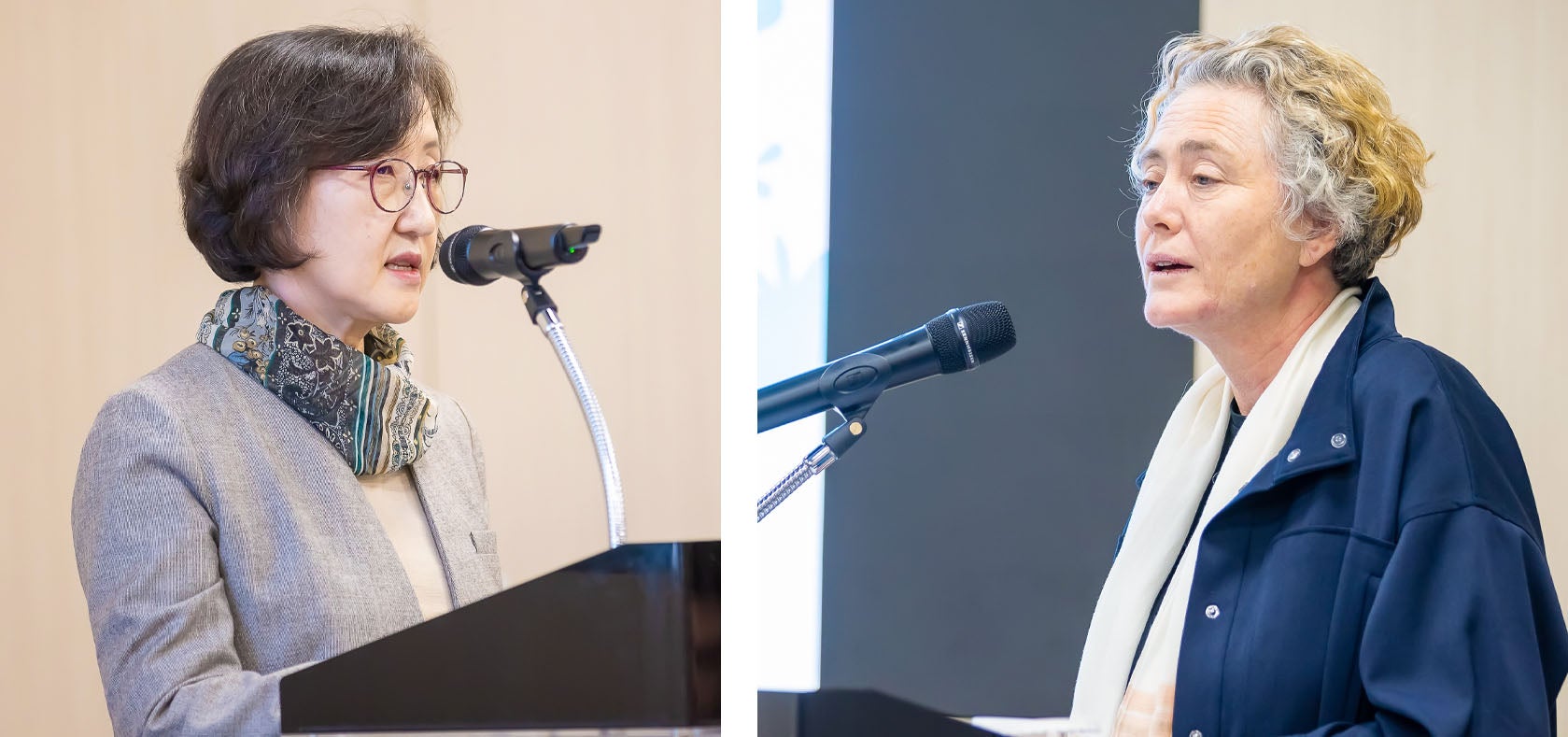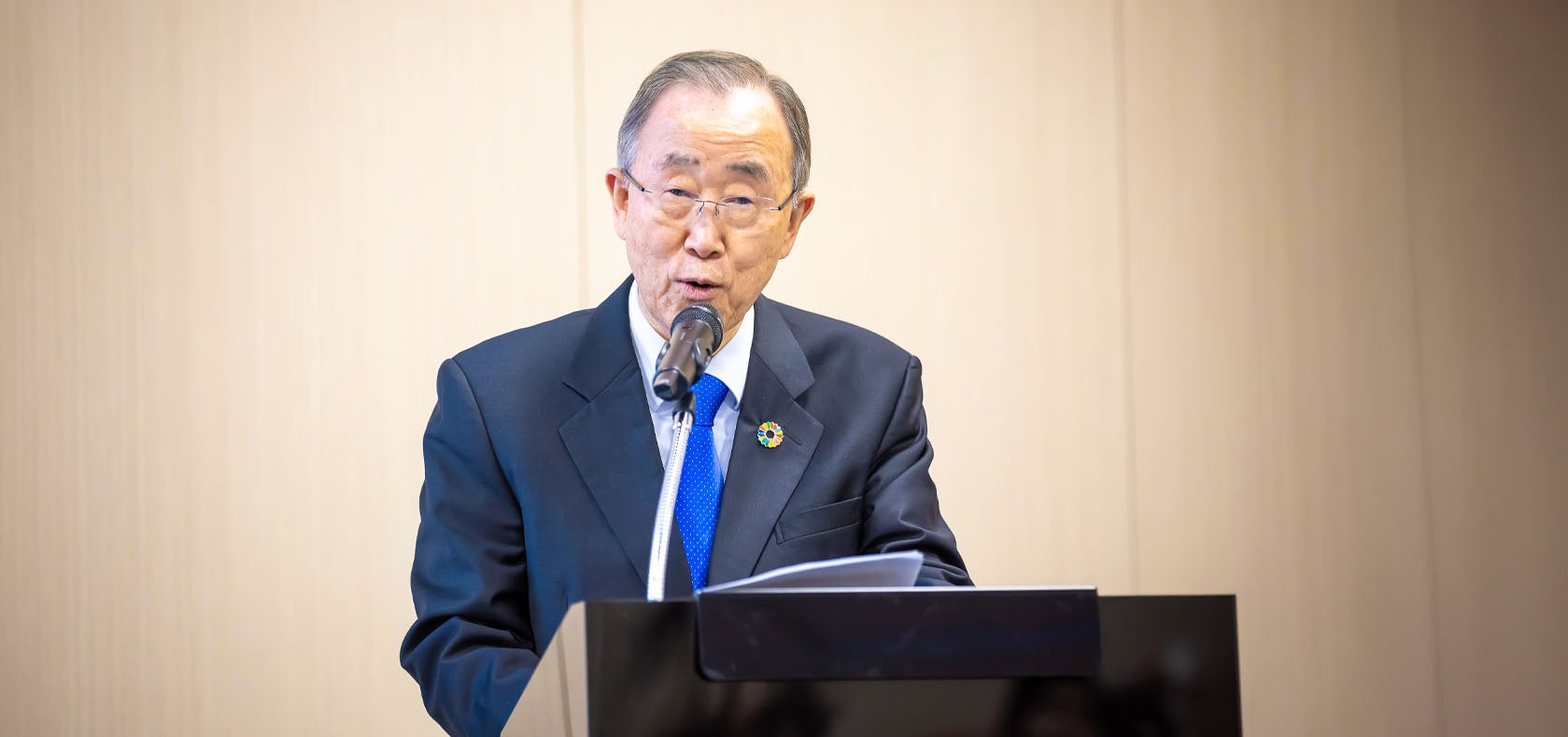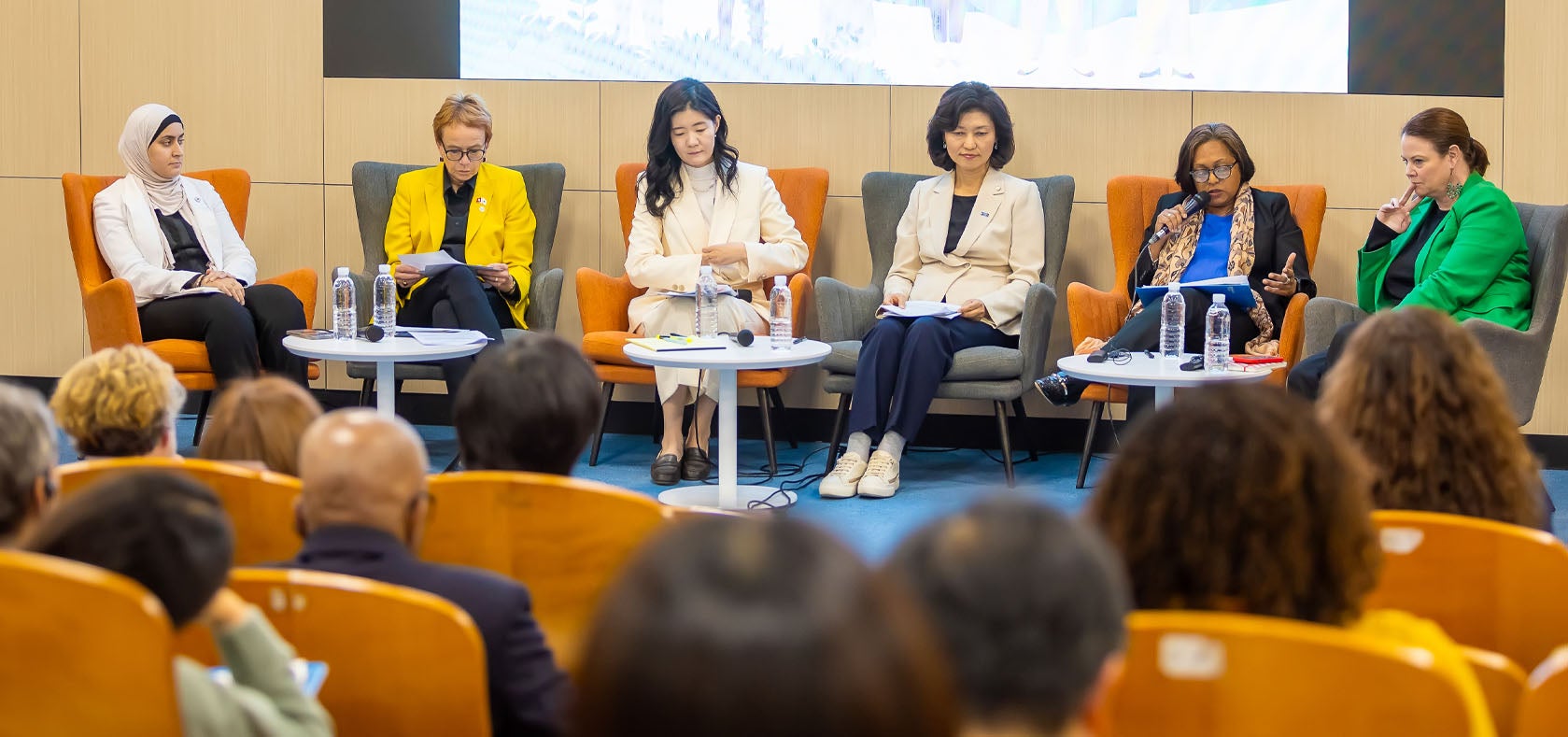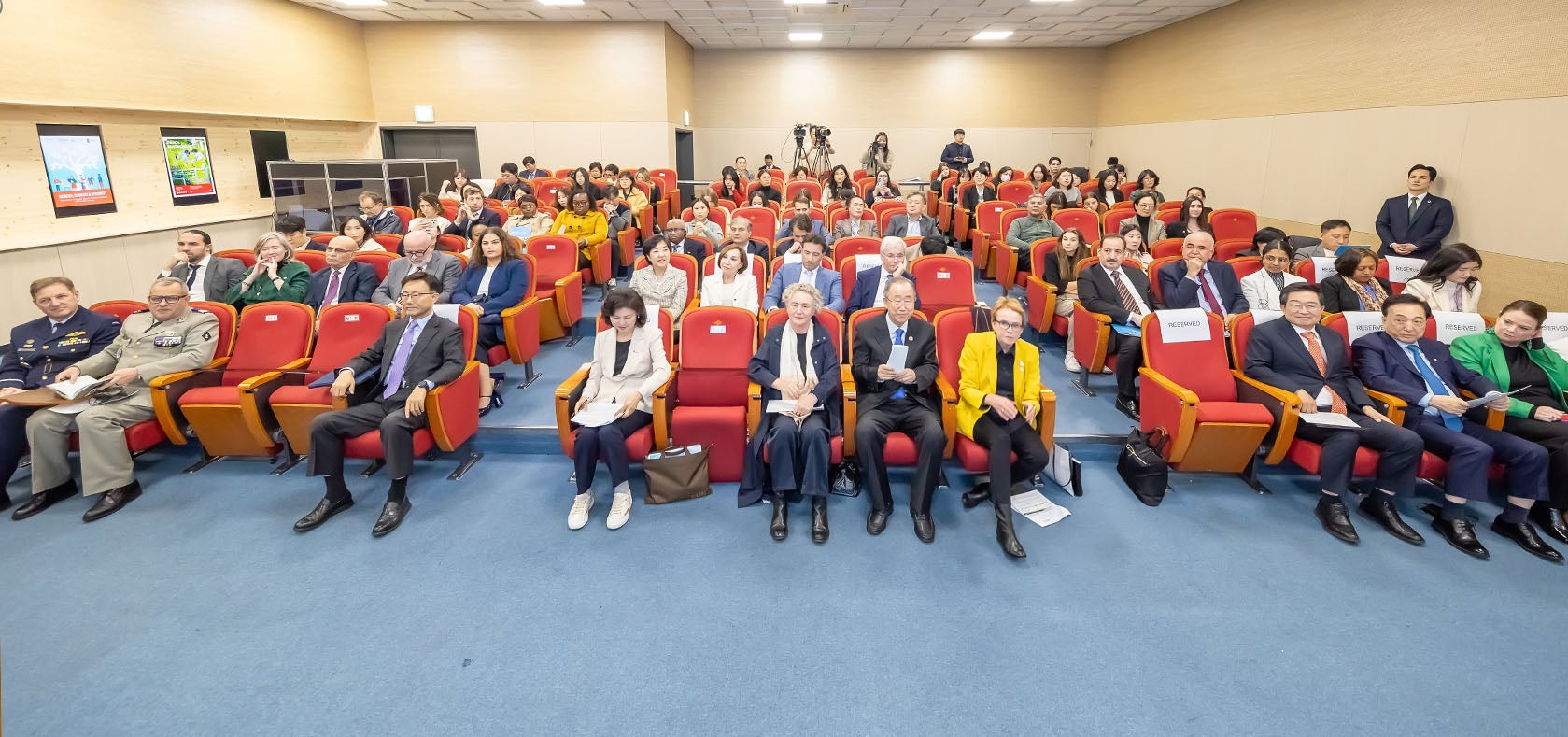
In her opening remarks, Dagmar Schmidt Tartagli, Ambassador of Switzerland to the Republic of Korea, noted that women and girls are disproportionately affected by climate change, whether through displacement, poverty, or health risks. In agreement, Jeongshim Lee, Director of the Centre then stressed that empowering women as key agents of peace and resilience is an effective way to drive the transformative changes for climate action and gender equality.

Speaking at the event, Ban Ki-moon, former Secretary-General of the United Nations (UN), commended the work of UN Women and recounted his dedication to the issues of climate change and gender equality during his tenure. “Empowering women and girls and promoting gender equality,” he emphasized, “is essential to solving the world’s biggest interconnected challenges.” “This includes achieving the UN Sustainable Development Goals (SDGs), resolving conflicts, and taking climate action,” he said.

The high-level panel discussion, moderated by Ahjung Lee, External Relations Specialist of the Centre, then explored the “why” and “how” of the intersection of gender, climate, and peacebuilding. Eva Herzog, President of the Swiss Council of States, noted that an overwhelming majority of those displaced by climate change are women or girls, who face higher risks of poverty, violence, and unintended pregnancies as they migrate to safer areas. “Faced with these alarming trends, the international community and governments cannot remain passive,” she declared. “We, as politicians, have a responsibility to tackle climate change directly, to anticipate future challenges, and to create policies that address its wide-reaching impacts,” she concluded.
Marwa Shabbar, Head of the Legal Department of the International Committee of the Red Cross (ICRC) Regional Delegation for East Asia, also shared observations from humanitarian contexts, highlighting the gendered impacts of conflicts and climate crises on the ground. She called for more targeted humanitarian support for displaced women and girls living in places affected by conflict and climate crises.
Norul Mohamed Rashid, UN Women’s Regional Policy Advisor on Governance, Peace and Security for Asia and the Pacific, explained the need to integrate the Women, Peace, and Security (WPS) framework into the discussions on climate change. “We must ensure that women are represented and their voices are heard in climate-related discussions; and this requires our deliberate effort and our investment as well,” she remarked. Kang Kyungsook, Member of the National Assembly of the Republic of Korea, also emphasized the need to amplify marginalized voices in addressing climate and security issues, noting how women provide innovative solutions that heal the wounds inflicted to our planet, thereby uplifting communities.
Lastly on climate financing, Stephanie Speck, Head of Special Initiatives at the Green Climate Fund, explained the correlation between the climate crisis and conflict, and stressed the need to integrate gender perspectives and conflict sensitivity into climate finance commitments across climate vertical funds.
This event was the first of its kind in ROK, marking an important step toward recognizing and strengthening the critical connection between gender equality, climate action, and peacebuilding. The conclusion was clear: achieving sustainable peace and implementing effective climate solutions require the full and equal participation of women at every level of decision-making.

![[banner]](/sites/default/files/2024-12/coe-c1325-banner-1679px.jpg)